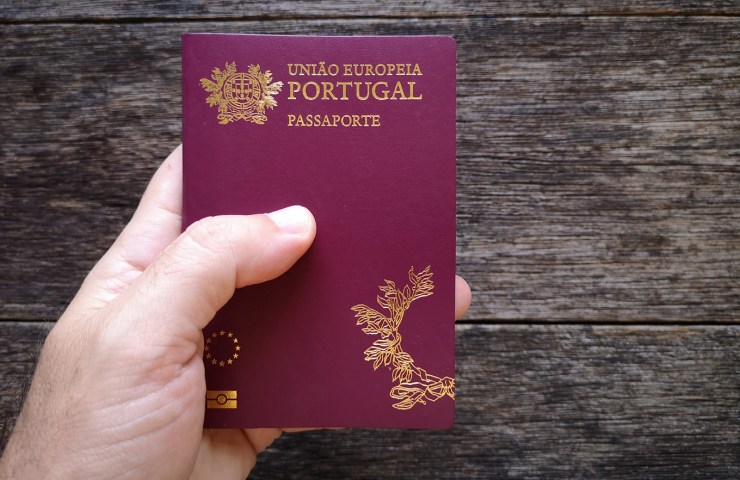On 31 December 2020, the transitional period during which the European Union's law continued to apply to the United Kingdom, after it ceased to be a member state of the European Union on 31 January 2020, came to an end.
A new agreement on the relationship between the European Union and the United Kingdom was reached on December 24 2020, entering into force on January 1, 2021 - called the Trade and Cooperation Agreement, consisting of 3 main pillars:
- Free trade agreement;
- New partnership for the security of citizens;
- A horizontal governance agreement in matters of governance.
It should be pointed out that, although the transitional period ended on 31 December 2020, UK citizens living in Portugal will see their right of residence protected by the "Exit Agreement".
However, British citizens who intend to live in Portugal as from 1 January 2021 will be considered nationals of a third state country (Law number 23/2007 - Immigration Law).
With this in mind, and with the recognition that Portugal has the sixth strongest passport in the world, allowing visa-free access to more than 172 countries and the right to study, work and live in any country of the European Union, a British citizen who has had his right taken away with Brexit can once again have the right to travel freely through the Schengen area and enjoy the rights of a European Union national.
There are some ways to have this right redeemed, we highlight the most searched for and used by foreigners so far:
- First, there is the D2 visa, better known as the residence visa for entrepreneurs. It is an interesting visa for those who wish to start a business in Portugal or work as self-employed.
- Next, the D7 visa. This is an excellent option for citizens who have their own income from pensions, assets, property, intellectual property, or financial investments.
- Lastly, the famous Golden Visa programme, the five-year residency-by-investment scheme for non-EU nationals, which is a residence permit for a citizen outside the European Union intending to invest in Portugal. Main investments to proceed with this type of residence permit:
- Transfer of capital in an amount of 1 million euros, or more.
- Creation of, at least, 10 jobs and corresponding social security registration of workers.
- Acquisition of real estate with a value equal to or greater than five hundred thousand euros.
The major differences between the D2 visa, D7 visa and the Golden Visa are:
- The D2 visa and the D7 visa are part of the long-stay visa (visa for obtaining a residence permit) and are therefore a prerequisite for applying for a residence permit. By contrast, the Golden Visa is a residence permit which does not require a prior application for a residence visa.
- As for the D2 and D7 visa procedure, these are presented at the Portuguese Consulate/Embassy and, once approved, the visa is affixed to the applicant's passport with a validity of 120 days, allowing up to two entries. During this period, the applicant must travel to Portugal to apply for the residence permit personally. On the contrary, the Golden Visa procedure starts at SEF (Immigration services) with the submission of the necessary documents for a pre-analysis, followed by a face-to-face interview for the residence permit application.
However, the validity of the residence permit is common to the D2 and D7 visas and the Golden Visa, being the first residence permit valid for 2 years and renewable for subsequent periods of 2 years.
- One of the biggest differences, lies in the minimum period of stay in Portugal, after obtaining the residence permit. Foreign citizens holding a D2 or D7 visa should not be absent from Portugal for more than 6 consecutive months or 8 interpolated months. The foreign national holding a residence permit based on the Golden Visa must be in Portugal for 7 days in the first year and for 14 days in the following two years.
- The last difference is in the exercise of professional activity. The D2 Visa and Golden Visa always allow its holder to work, unlike the D7 visa, which does not allow the holder to work during the validity of the visa. Only after obtaining residence card may a D7 visa holder carry out a professional activity, if that is the purpose.
Presented the major differences between these three methods, lets focus on the main benefits, common to the D2 and D7 visas and Golden Visa:
- Possibility of entering Portuguese territory without a visa;
- Moving freely within the Schengen area, made up of 26 European countries, also without a visa;
- Living and working in Portugal (having in mind that, in the case of the D7 visa, only after obtaining the residence permit);
- Benefit from family reunification, including spouse; minor children; adult unmarried children who are dependent and are studying in Portugal, except in the case of Golden Visa, in which the adult child may study anywhere in the world; first degree ascendants of the applicant or the spouse who is dependent; and minor siblings who are under the resident's guardianship;
- Become eligible for permanent residence after five years of temporary residence, complying with the legal requirements in force;
- Become eligible for Portuguese nationality after five years of residence, complying with the legal requirements in force.







